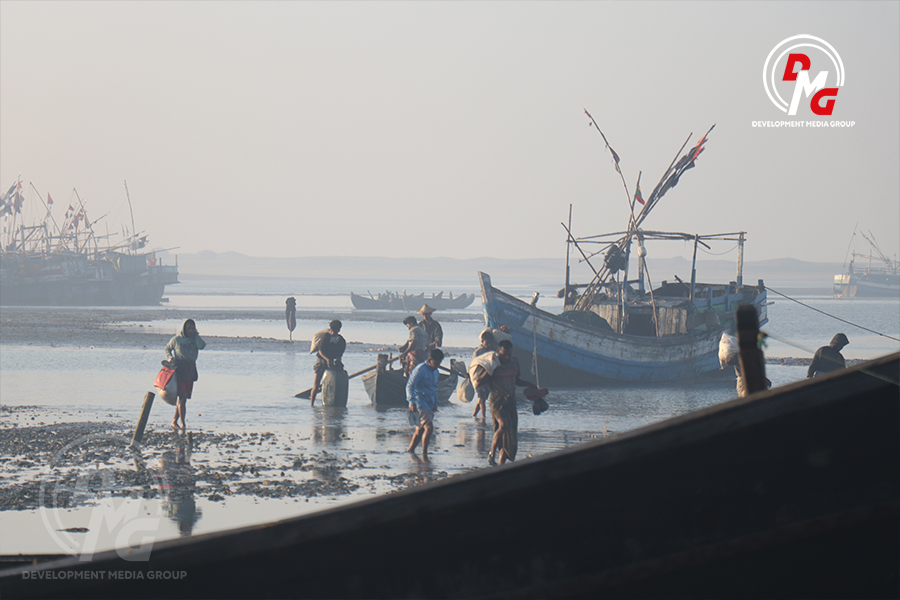- Weekly Highlights from Arakan State (Jan 26 to Feb 1, 2026)
- Arakanese youth stabbed in Mae Sot urgently needs financial aid for medical treatment
- Five years on Myanmar faces uncertain military and political outlook after coup
- Myanmar Navy detains Pauktaw fishermen and demands ransom
- Junta Airstrikes on Arakan and the Consequences for Independent Media
High cost of sanitary pads presents health challenges for IDP women
Women at displacement camps and in some rural villages have turned to a traditional method of using cloth rags for their periods to save money and also due to an increase in the price of sanitary pads.
22 Sep 2023

DMG Newsroom
22 September 2023, Kyauktaw
Women at displacement camps and in some rural villages have turned to a traditional method of using cloth rags for their periods to save money and also due to an increase in the price of sanitary pads.
Taungmin Kalar displacement camp in Kyauktaw Township provides shelter for more than 470 people, of whom around 280 are women. Many are using cloth rags for their periods as they cannot afford to buy tampons.
“Some women are shy about using cloth rags for their periods. They feel embarrassed that other people will find out. Some working women do not work during their periods as they use cloth rags,” said displaced woman Ma Aye Khin.
A charity last month provided sanitary pads for women at Taungmin Kalar displacement camp. However, women there are still short of pads as there is no regular supply.
Women at the Zedi Taung (west) displacement camp in Rathedaung town have also been forced to use cloth rags. There are 372 women at the camp.
“Students can’t afford to buy as many pads as they need,” said Ma May Su Hlaing from the camp.
The prices of sanitary pads have almost doubled amid high inflation across many sectors of the economy. A box of pads is sold for between 1,000 and 1,500 kyats these days.
“Prices have increased. In low-income families, women can’t afford to buy pads. They have to use traditional methods,” said Ma Oo Mya Aye from Kyauk Kote Village in Minbya Township.
Although cloth rags can be a cost-saving measure, prolonged use can pose health risks including potential rashes and itchiness, and urinary tract infections.
“Even if cloth rags are washed thoroughly, they can become dirty when dried or used for a long time,” explained a healthcare worker from Ponnagyun Township. “In the rainy and cold seasons, when there is not good sunlight, cloth rags can stay damp, and dirty with bacteria. It can cause complications.”















.jpg)

